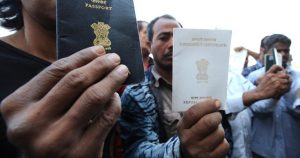
Staff Writer
Last week’s visits to restaurants in Johannesburg and Tshwane by EFF head, Julius Malema, were both illegal and political, according to experts. The visits saw the EFF head seeking documentation on worker quotients, in an attempt to supposedly assess employment statistics between South Africans and foreigners. This comes in light of the Patriotic Alliance and ActionSA also adopting anti-immigrant stances, with many warning that this was paving the ground for increased and more violent xenophobia.
Speaking to Radio Islam International, Professor Derk Kotze and Amore Schmitt (an attorney with Werksmans) both concurred that the visits were highly problematic, with Schmitt arguing that this could be against the POPIA Act, as employers did not have to provide such information to a political party: “If you walk up to a business and want to claim access, or anyone wants to claim access to the information of a business, that business also has a right to privacy, because the POPIA legislation and our constitution affords that right to privacy also to a business… The parliamentarians are there to formulate legislation and government departments to execute that legislation… there is a difference in terms of what parliament does versus what the various government departments are mandated to do in terms of the legislation.”
Professor Kotze speculated that this may have been a result of their poor performance in the November 2021 poll, where they received less of the vote than expected, despite increasing their seat count. Moreover, he also noted that the party is more an issue specific party than a policy one, alluding to its role in the very successful Clicks protests previously. It was also noted that these acts were relatively successful in terms of vote gains in the short term, but would most definitely exacerbate anti-immigrant sentiment in the country. Significantly, Professor Kotze noted how such actions are being justified as “South Africa first” and economic nationalism, and have been espoused by ActionSA and the Patriotic Alliance.
The conclusion was largely that employers and employees need to know their rights, and that employment equity legislation already makes provisions for foreign national’s employment. However, many smaller businesses were operating outside of such legislation. Nevertheless, the onus was on government agencies and the trade union movement to shed light on such rights.







0 Comments